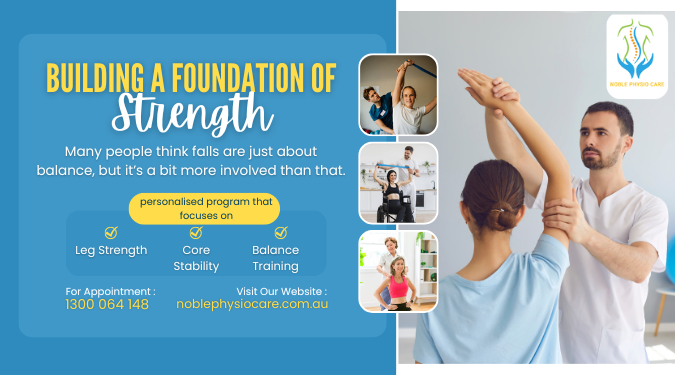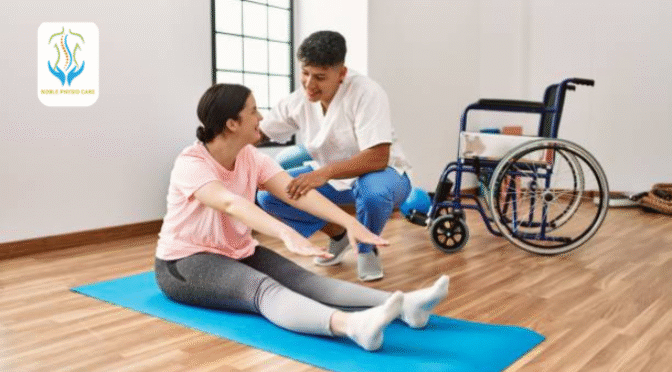It’s a worry that crosses many of our minds, especially if you’re living with a disability or a health condition that affects your balance and strength. That moment of uncertainty when you stand up, that hesitation on a slippery floor, or the fear of tripping on a rug. Your Melbourne home should be your safe place, your sanctuary. So, asking, “Can NDIS Physio help reduce my risk of falls at home?” is not just a practical question, it’s about reclaiming your confidence and independence.
The short answer is a resounding yes. Here’s how a dedicated NDIS physiotherapist in Melbourne works with you to create a safer environment and a stronger you.
- It’s More Than Just Balance: Building a Foundation of Strength
Many people think falls are just about balance, but it’s a bit more involved than that. A fall can happen when your leg strength isn’t what it used to be, when your reaction time is a little slower, or when you feel dizzy upon standing.
This is where your NDIS home physio in Melbourne becomes your partner in prevention. We don’t just give you a generic set of exercises. We get to know you, your body, and your home. We then design a personalised program that focuses on:
Leg Strength: Simple, safe exercises to build up the power in your quads, glutes, and calves. Stronger legs mean more stability when you’re walking from the lounge to the kitchen.
Core Stability: Think of your core as your body’s anchor. A strong core helps you stay upright if you trip or lose your balance for a second.
Balance Training: This is done carefully and progressively, often starting with you holding onto a sturdy chair or kitchen bench. We work on making those small, stabilising muscles work harder, so everyday movements feel more secure.

- Your Home, Your Space: A Practical Partnership
A key advantage of home visit physiotherapy in Melbourne is that sessions happen in the space where daily life unfolds. This allows the physiotherapist to observe and address real-world challenges directly. They can identify potential hazards like loose rugs or tricky steps, and then tailor practical strategies to navigate them safely. This practical approach means the exercises and techniques learned are immediately applicable, turning the familiar environment of a home into the most relevant and effective therapy space.
Beyond the Physical: The Gift of Confidence
Perhaps the most profound benefit of all is the return of your confidence. The fear of falling can be paralysing, sometimes leading people to limit their activities. This can create a cycle where you become less active, which in turn makes you weaker and more prone to a fall.
By building your strength and stability, NDIS physiotherapy in Melbourne helps break this cycle. The goal isn’t just to prevent a fall—it’s to give you the peace of mind to move freely in your own home. It’s about enjoying a cuppa in the garden without anxiety, or playing with your grandkids on the floor without that constant worry in the back of your mind.
Taking the Next Step
If the worry of falling is impacting your life, you don’t have to manage it alone. This is exactly what your NDIS funding is designed to support. A qualified NDIS physiotherapist can come to you, assess your unique situation, and create a practical, empowering plan to help you feel stronger, safer, and more confident within your own four walls.
Finally, before you speak to NDIS physiotherapists near you, make sure you choose professionals with enough experience.
Call to Make an Appointment With Us
To schedule an appointment with Noble Physio Care, call 1300 064 148 or send an email to noblephysiocare@outlook.com if you need us to call you.







